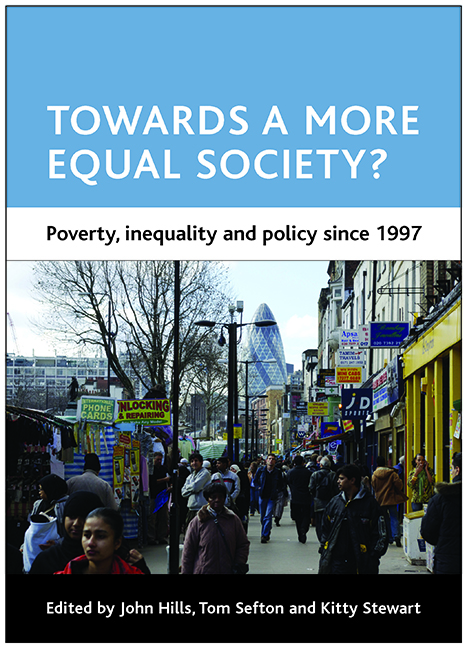ten - Migration, migrants and inequality
Published online by Cambridge University Press: 22 January 2022
Summary
Introduction
Although international migration has always been a feature of national life, this aspect of population change has increased substantially since the 1990s, mostly as a result of asylum arrivals to the UK between 1990 and 2002, sustained work visa flows and large-scale migration from the new European Union (EU) member states after 2004. This substantial population change presents two challenges to those concerned with equality and poverty reduction. First, how are migrant communities faring in terms of their labour market experiences, educational outcomes and progress towards equality. Second, how, if at all, does migration impact on the employment prospects, wages and employment conditions of non-migrants?
This chapter focuses on these two questions. It examines who has migrated to the UK in the period 1997-2007 and analyses the changing socioeconomic profiles of migrant communities. The chapter then examines the impact of migration on broader progress towards greater equality in the UK.
Definitions and data sources
The United Nations (UN) definition of migrants is persons who are resident outside their country of birth. In the UK, many migrants have British citizenship and have been resident in the UK for many years and might also be described as members of minority ethnic communities (see Chapter Nine). This chapter uses the term ‘foreign-born’ to describe those living outside their country of birth, and uses the term ‘new migrants’ in a qualitative sense to describe those new to the UK.
The chapter primarily draws on Census 2001 and Labour Force Survey (LFS) data for its analysis of both migrant communities and the impacts of migration on the UK-born population. The LFS is a quarterly survey, which, like the Census, includes questions about country of birth that can be analysed alongside other variables such as total income and occupation. Country-of-birth data are used to define migrant groups in this chapter, rather than ethnicity or nationality variables. As noted in Chapter Nine, ethnicity categories in both the Census and the LFS are very broad and aggregate diverse groups. Somalis and Nigerians, for example, are grouped together as Black Africans. Nationality data are also imprecise, as migrants may retain the citizenship of their country of birth, take up British citizenship, possess the citizenship of a third country or be stateless.
- Type
- Chapter
- Information
- Towards a More Equal Society?Poverty, Inequality and Policy since 1997, pp. 201 - 220Publisher: Bristol University PressPrint publication year: 2009

